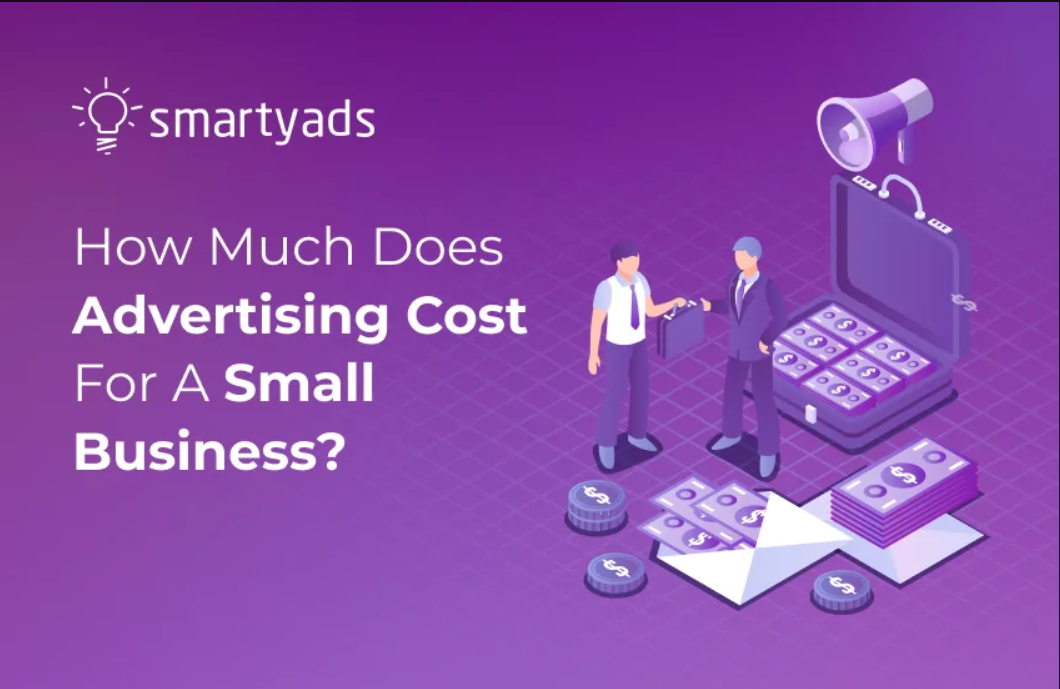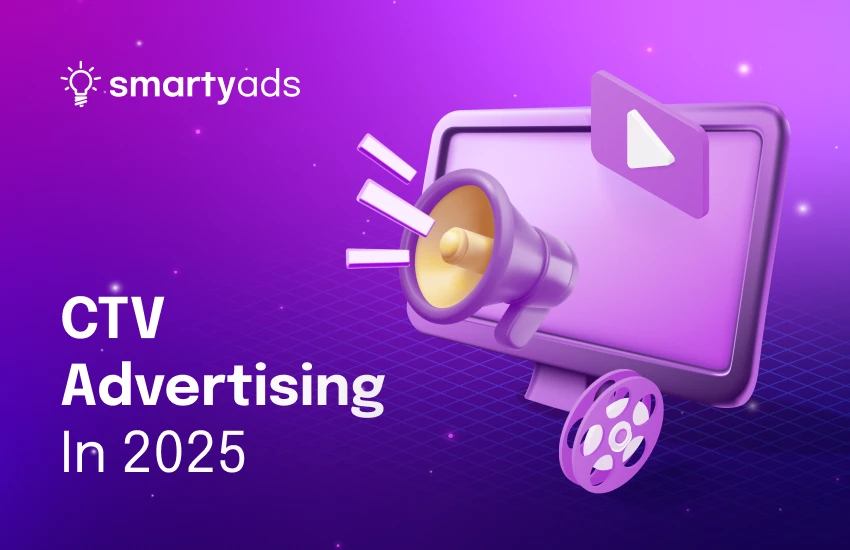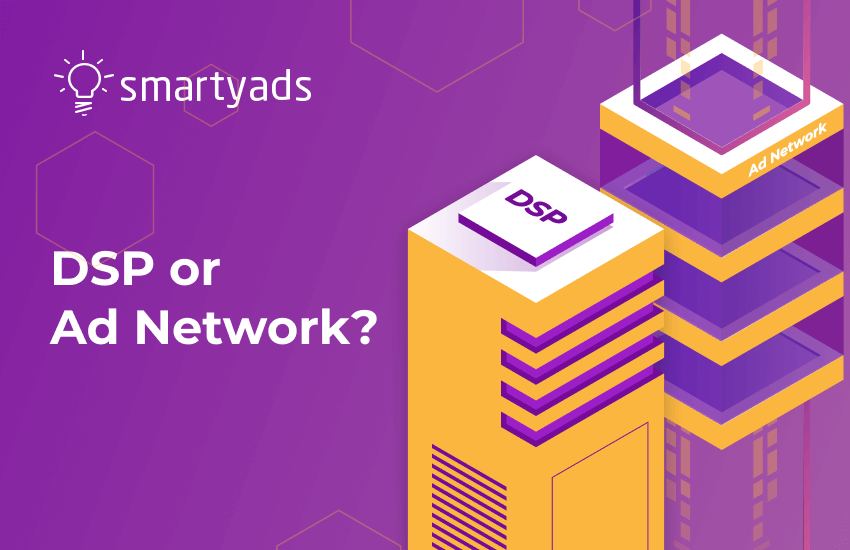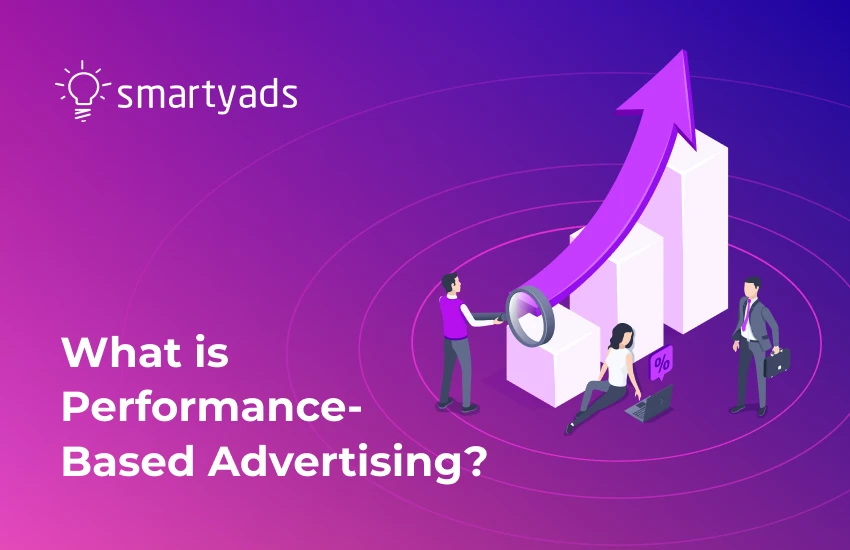The advertising budget for a small business can vary widely depending on several factors, including the size and type of business, the industry, the target audience, and the specific advertising goals.
Some common marketing channels for small business marketing include social media, email marketing, local newspapers, flyers and brochures, online directories, and Google Ads.
The cost of these channels can range from free (such as social media) to several thousand dollars per month (such as Google Ads).
One way to determine the cost of advertising for your online store or your small business is to set a good marketing budget based on your overall marketing goals and available resources.
For example, if you have a limited marketing budget, you may want to focus on low-cost or free advertising channels like social media or email marketing.
If you have a larger marketing budget, you may be able to invest in more expensive channels like Google Ads or direct mail campaigns.
According to a BDC survey conducted in 2019, Canadian small businesses' average marketing budget is slightly over $30,000 annually on marketing.
The survey also found that businesses with 20 to 49 employees typically have twice that average marketing budget, while companies with 50 or more employees allocate over $100,000 for marketing per annual sales.
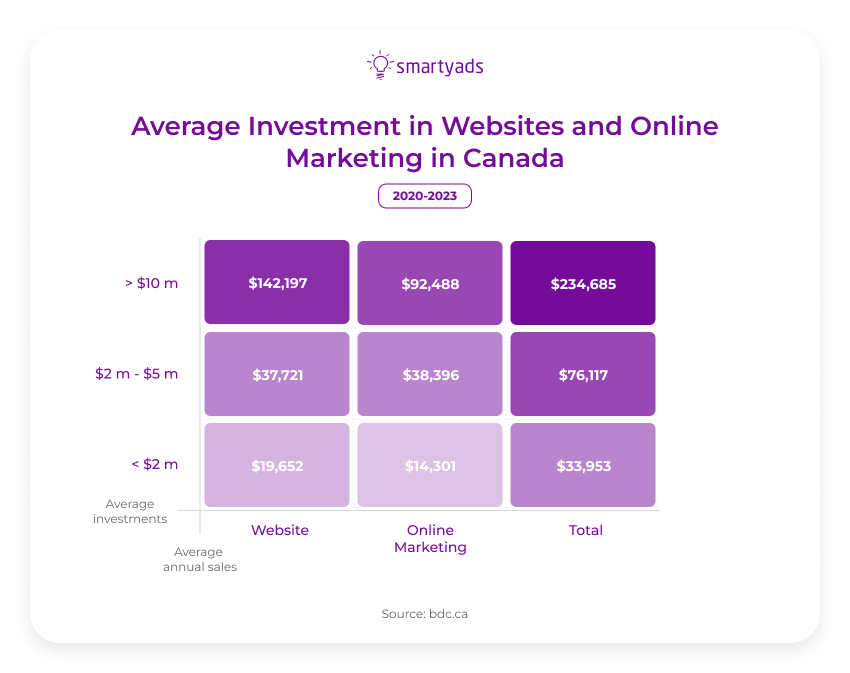
Why is advertising important for small businesses?
It's obvious to everyone that advertising and online marketing helps increase annual sales for any business, regardless of size.
However, for small business owners, advertising and the quality of advertising content can be crucial in the context of generating the desired amount of revenue. Let's figure out why small businesses need to advertise online.

Increase Brand Awareness
Advertising can help businesses create awareness about their brand, products, or services. By reaching a wider audience, advertising can help businesses introduce themselves to potential customers who may not have known about them otherwise.
Attracting Potential Customers
Advertising can be a powerful tool to increase brand awareness and attract new customers. Small businesses can entice new customers to try their products or services by highlighting unique features, promotions, or special offers.
Building Credibility
Consistent and effective advertising can help small businesses build credibility and establish themselves as reputable players in their industry. This can help small business administration create a positive reputation and enhance brand awareness.
Staying Competitive
In today's competitive market, advertising is necessary to stay relevant and ambitious. Without advertising, small businesses may struggle to keep up with their competitors who are investing in advertising.
Increase Sales
Ultimately, advertising can drive sales and revenue for small businesses. By reaching potential customers and encouraging them to make a purchase, advertising can help businesses grow and thrive.
Read about small business advertising in our previous articles. Plus, if you are curious about online advertising rates, read our publication about it.
The marketing budgets for small businesses
Creating a reasonable marketing budget for a small business is crucial in building a successful operation. A well-planned average marketing budget ensures you have the resources to promote your products or services, reach your target audience, and achieve your business goals.
However, creating a marketing budget can be daunting for small business owners, especially those just starting.
Know your marketing goals
Determining your overall goals is the first step in creating a good marketing budget amount. This includes identifying what you want to achieve from your marketing efforts, such as increasing brand awareness, generating leads, organic traffic, or driving sales.
By defining your goals, you can create a plan to guide your marketing activities and help you achieve the desired outcomes.
Use different marketing channels
Once you clearly understand your goals, you can allocate a portion of your overall budget to various marketing channels.
This includes digital advertising, social media, content marketing, email lists, direct sales, and other marketing methods and advertising forms relevant to your business.
It's important to allocate your budget based on your target audience and the channels they will most likely engage with.
Don't forget about digital marketing
Digital advertising has become increasingly popular among small businesses because it can reach a large audience at an affordable cost.
This includes paid and search ads, display, and social media advertising. By investing in digital advertising, you can reach a targeted audience and measure the effectiveness of your campaigns in real time.
Use social media platforms
Social media marketing is another cost-effective way to promote your small business. This includes creating a social media presence on platforms like Facebook, Twitter, and Instagram and engaging with your audience through regular posts and interactions.
Social media marketing can help you build brand awareness and create a community of loyal customers.
Make a good content marketing
Content marketing is also important to a small business's precious marketing budget. This includes creating and sharing valuable content, such as blog posts, videos, and infographics, to attract and engage your target customers.
By providing informative and engaging content, you can establish yourself as an authority in your industry and build trust with your target customers.
It's important to continuously evaluate the performance of each marketing channel and adjust your marketing budget accordingly to ensure you're getting the best return on investment.
This involves using marketing metrics and regularly tracking metrics such as website traffic, social media engagement, and sales conversions.
You can optimize your marketing budget and achieve your business goals by monitoring your marketing efforts and adjusting your marketing strategy.
What is the average marketing budget for a small business?
The average marketing budget for a small business can vary greatly depending on the industry, geographic location, and business size. According to the US Small Business Administration (SBA), a general rule of thumb for small businesses is to allocate 7-8% of their gross revenue toward marketing and advertising efforts. However, this percentage can vary based on factors such as competition, market saturation, and marketing goals. So, how much does marketing cost for a small business?
It's important to prioritize marketing budgets based on their potential return on investment.
This may include focusing marketing investments on cost-effective digital marketing strategies, such as social media and content marketing, rather than more expensive traditional advertising methods like print and television ads.
To illustrate, suppose a business owner earns $1 million in revenue and allocates $100,000 for advertising expenses, resulting in a 10% profit margin. If revenue increases to $2 million, small business spend on marketing would only amount to $200,000, resulting in a 5% return on investment. Additionally, digital advertising is rapidly becoming the preferred advertising method due to its potential to reach unlimited people.
In 2020, there was a 12.2% year-over-year increase in digital advertising spending. While small businesses typically advertise in local newspapers and circulars, they may opt to prioritize digital advertising.
Ultimately, the marketing budget for a small business should be tailored to the ideal customer and their specific needs and goals and regularly evaluated and adjusted based on performance metrics to ensure the best possible return on investment.

What types of advertising does a small business owner need to focus on?
It's important to focus on effective and affordable advertising for your marketing budget. Here are a few types of advertising that may be particularly useful:
Social media advertising
Advertising on social media platforms like Facebook, Instagram, and Twitter can effectively reach your target audience.
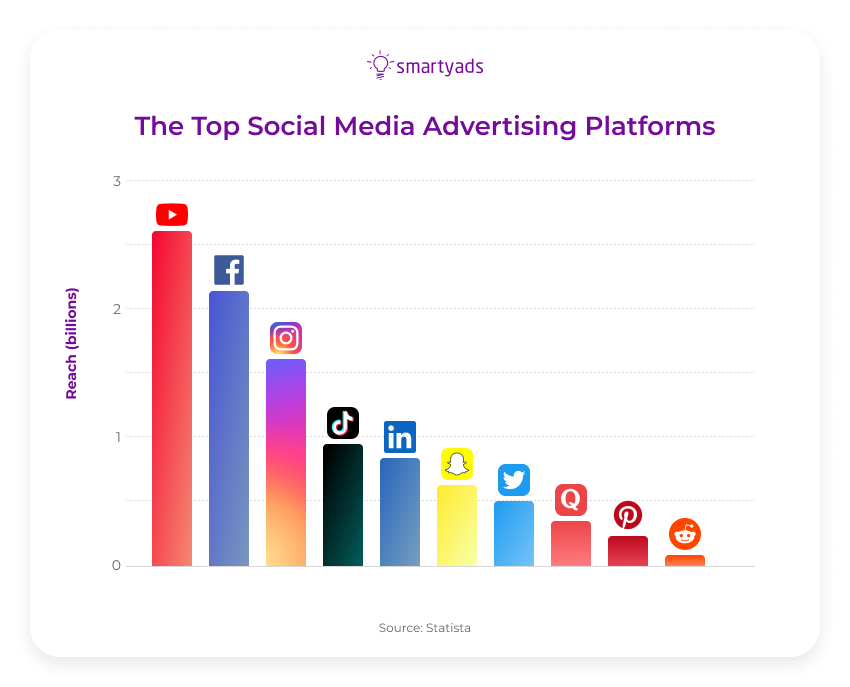
These platforms offer targeting options that allow you to show your ads to people most likely interested in your product or service. In addition, such advertising does not require large investments in small business marketing costs.
Local search advertising
If you have a physical storefront or location, it's important to be visible in local search results. Advertising on Google My Business or other local directories can help ensure your business is visible in organic search results and ads when people in your area search for products or services like yours.
Search engine optimization work will also help you to be in the first lines of results on search engines.
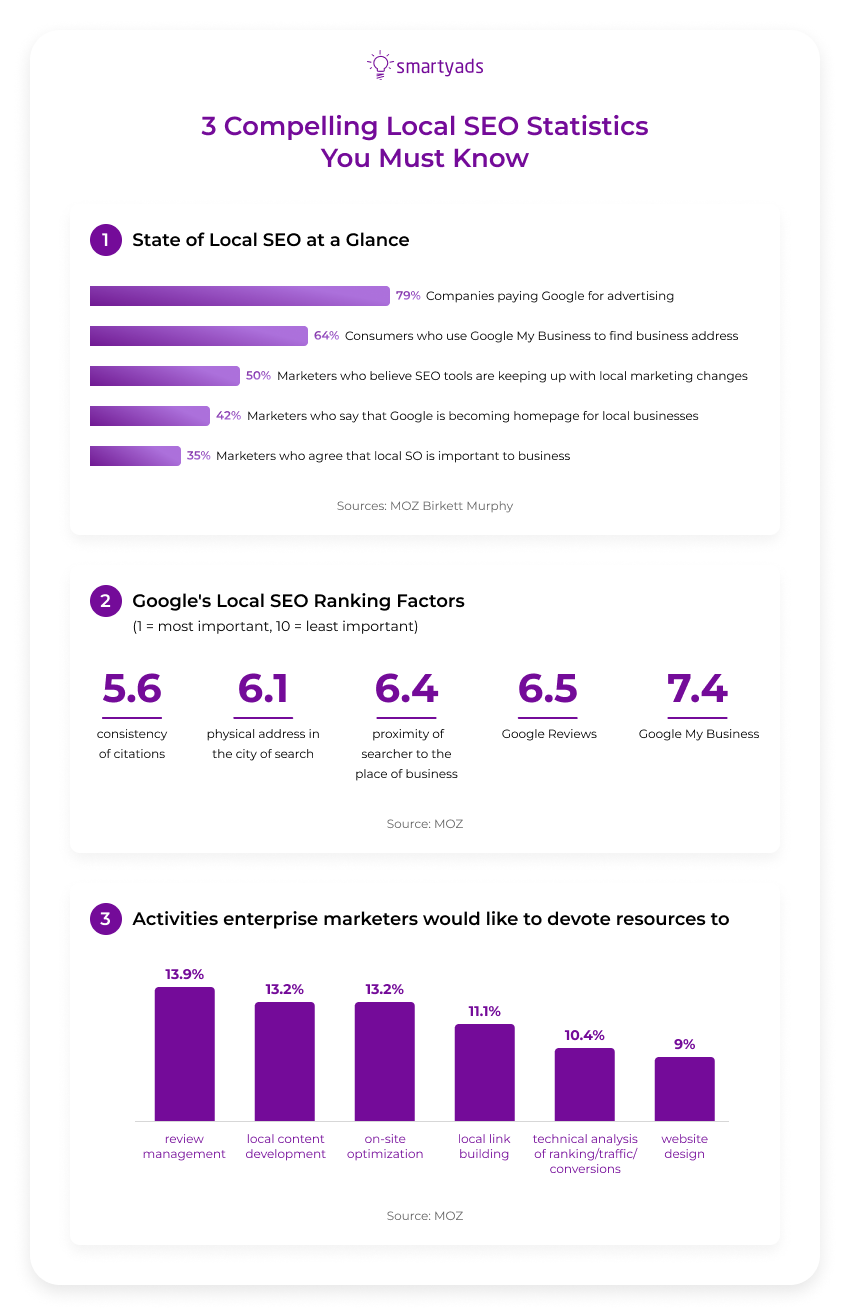
Email marketing
Building an email list of interested customers or potential customers can be a powerful way to stay top of mind and drive repeat business.
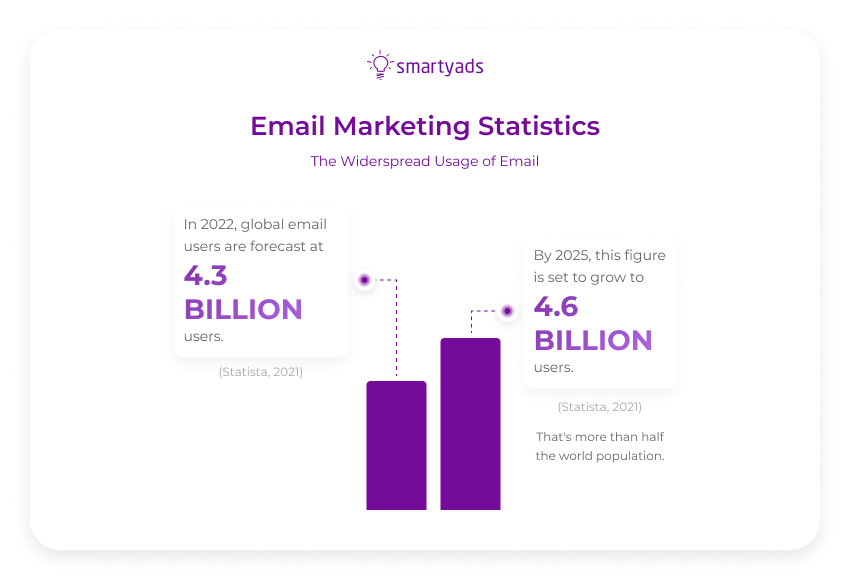
Sending regular newsletters or promotional emails can help keep your business in front of your audience. This is a good option for businesses with a limited average marketing budget.
Referral marketing
Encouraging your satisfied customers to refer their friends and family to your business can be an effective way to generate new business at a low cost.
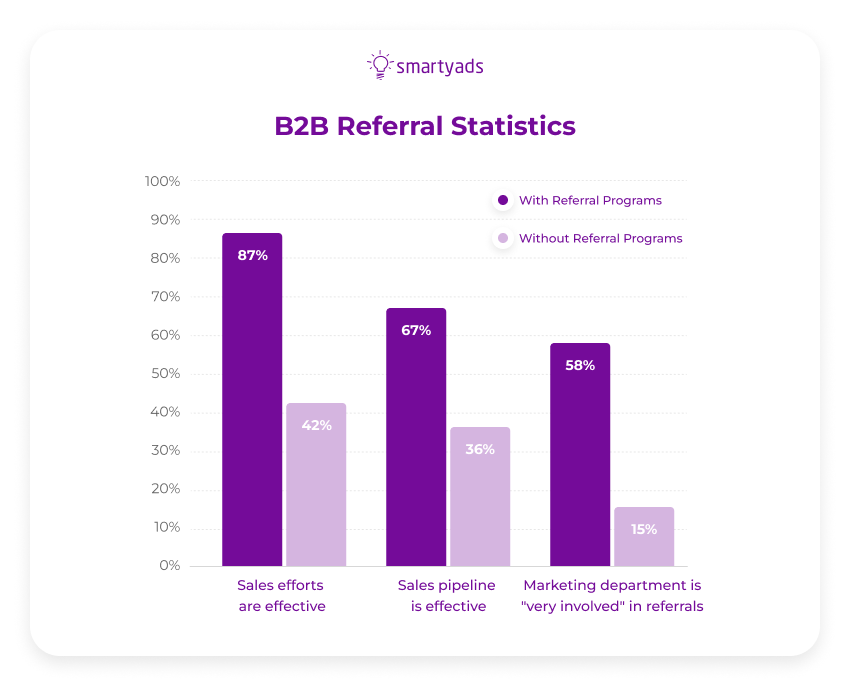
This can include offering referral discounts or incentives — a nice addition to the integrated marketing strategy.
Of course, all marketing decisions should be built around the specifics of your particular business itself. You can build a solid marketing strategy only by considering all the nuances and peculiarities of your business. So you can consider our tips but always act at your own discretion.
How to reduce marketing costs of online advertising for small businesses?
Digital marketing can be a powerful tool for small businesses but can also be expensive for your marketing budget.
Here are some tips for reducing the marketing costs involved in online advertising:
Set a budget. Before you start advertising, decide on a budget you can afford to spend on marketing alone. This will help you avoid overspending and ensure that you get a good return on investment.
Focus on targeted advertising. Instead of reaching a broad audience, focus on targeting your ads to the people most likely to be interested in your product or service. This can help you avoid wasting money on ads that aren't relevant to your target market of customers.
Use retargeting. Retargeting ads can be a cost-effective way to reach people who have already shown an interest in your business. By targeting people who have visited your website or engaged with your social media profiles, you can increase the likelihood that they will convert into paying customers.
Optimize your ad campaigns. Continuously monitor and optimize your ad campaigns to ensure you get the most out of your advertising budget. Test different ad formats, targeting options, and messaging to see what works best for your business.
Leverage free advertising options. Many free advertising options are available for small businesses, including social media, email lists, etc. By focusing on these free options, you can reduce your advertising costs while still reaching your target audience.
Negotiate with ad platforms. If you are spending a significant amount of money on advertising, you may be able to negotiate lower rates with ad platforms. Contact your account representative to see if they can offer discounts or special pricing.
Try to build your marketing campaigns wisely, and don't forget that the most important thing in advertising is the content with which it is presented. An ad with a small budget and good creative will definitely be more useful than one with a big budget but weak creative.
Getting to the bottom of it
Planning a marketing budget and launching marketing campaigns can be daunting for small businesses. However, many useful and important tools are available today, making it easier for small business owners to get off to a good start in the promotion.
We're talking, of course, about digital promotion tools. Many of them can be quite expensive, but many fit into a company's advertising budget, even if it's very small.
The first and perhaps most important step for any marketing campaign is market research, analysis, and planning.
If you know your target market and audience well enough, where they like to spend their time, and what tools they use to communicate, you know everything you need to plan a good marketing campaign.
Don't be afraid of online marketing; it's a necessity for small businesses today and a necessity that saves the marketing budget and can increase sales in the future.
If you have decided to launch your digital advertising campaign, register at SmartyAds DSP!

